The Federal University of Agriculture, Abeokuta (FUNAAB) was established as a specialised University on January 1, 1988 by the Federal Government of Nigeria with a tripodal mandate of Teaching, Research and Extension Services.
The land area of FUNAAB cover about 10,000 hectares in the North Eastern end of Abeokuta, the capital of Ogun State. The university has 351 academic programmes made up of 30 undergraduate programmes, 321 graduate programmes which include 31 Postgraduate diploma programmes, 152 Masters degree programmes and 138 Doctorate degree programmes.
| Acronym | FUNAAB |
| Nickname | FUNAAB |
| Motto / Slogan | Knowledge For Development |
| Colour | Green |
| Founded | 1988 |
| Undergraduate Programmes | |
| Postgraduate Programmes | 321 |
| Departments | 54 |
| Location | Odeda, Ogun, Nigeria |
| Address | P.M.B 2240, Abeokuta, Ogun State, Alabata Road, Abeokuta, Ogun State, 110111, Nigeria |
To build great leaders, found worthy in learning and character; to generate and advance knowledge through teaching, research, and provision of excellent learning conditions; and to contribute to sustainable development through community engagements.
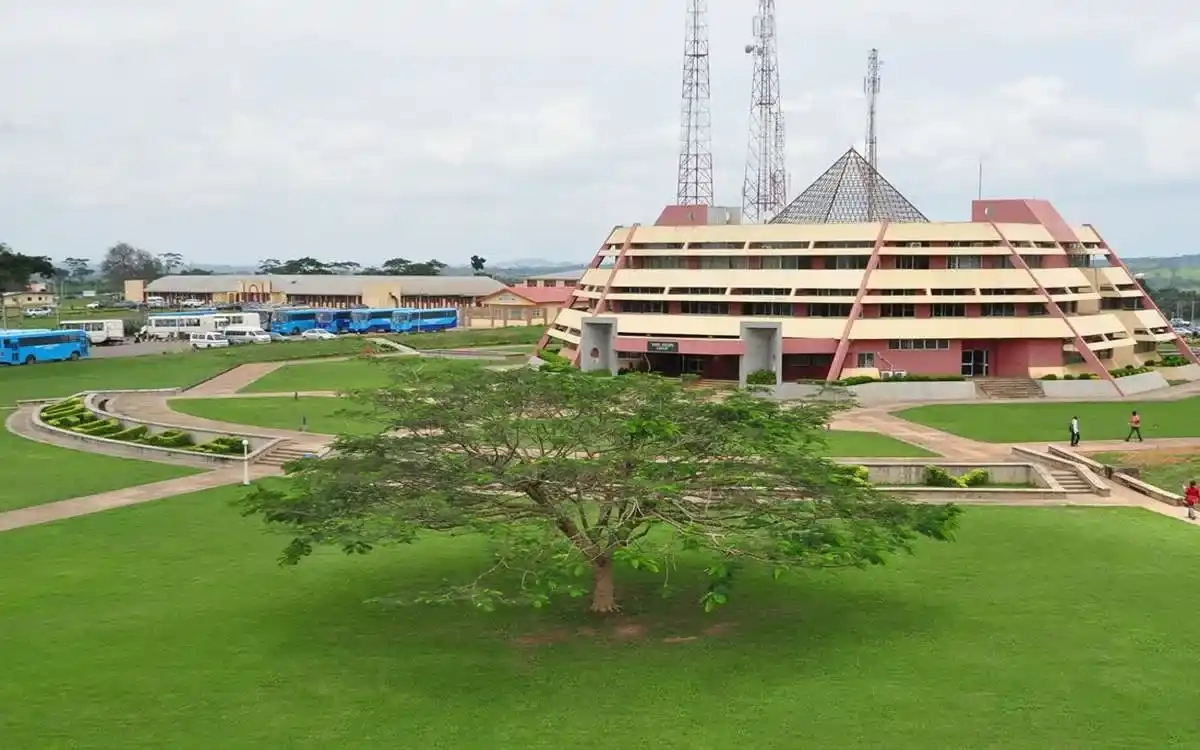
Equipped with modern facilities, a dedicated faculty, and a rich academic environment, FUNAAB fosters critical thinking and innovation. Students benefit from advanced laboratories, research centers, extensive libraries, and practical learning opportunities.
With a mission to produce skilled professionals to tackle global agricultural challenges, FUNAAB serves as a hub for talent development and pioneering research in agricultural sciences and related fields.
FUNAAB specializes in agricultural education, research, and development, standing as a pioneer in Africa. FUNAAB offers diverse undergraduate and postgraduate programs, spanning agriculture, forestry, veterinary medicine, engineering, natural sciences, social sciences, and management sciences.
Acceptance Fee: N30750
Applicants must possess a minimum entry requirements of five (5) O’Level Credit in relevant subjects at one or two sittings in SSCE/GCE/NECO/NABTEB. Applicants are advised to Check FUNAAB's Brochure and confirm the Admission Requirements into respective Degree Programmes before logging in to fill your e-application form.
Candidates must have chosen the Federal University of Agriculture, Abeokuta (FUNAAB) of any of its affiliated institution as First Choice Degree-Awarding Institution on the prescribed form obtained from the Joint Admissions and Matriculation Board (JAMB), sat for the Unified Tertiary Matriculation Examination (UTME) and scored a minimum of 160 marks.
Candidates with a minimum of Upper-Credit or its equivalent, who have also applied to JAMB for admission and chosen the Federal University of Agriculture, Abeokuta (FUNAAB) or any of its affiliated institutionas as First Choice Degree-Awarding Institution.
Further, they are required to have submitted their transcript (OND/HND/NCE candidates) or Certified True Copy of Statement of Results duly stamped by Director/HOD of the institution graduated from (A'level candidates) to the Registrar, Federal University of Agriculture,
Email: [email protected],[email protected]
Phone : 08033000807, 07034486235
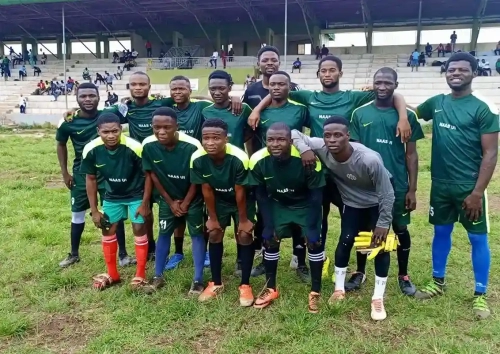
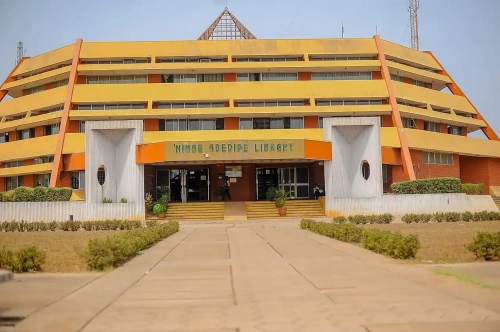
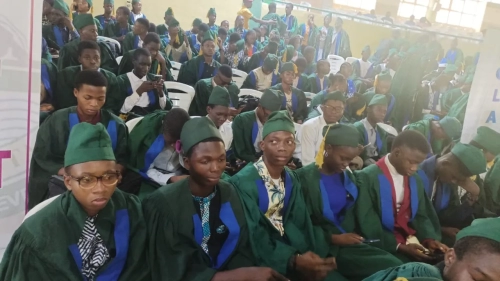
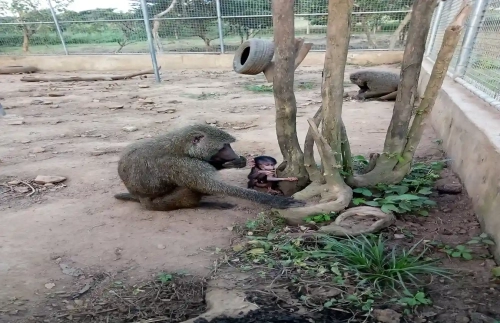
He obtained the B. Sc (Agricultural Biology) from the University of Ibadan in 1987 and bagged the doctorate degr... read more
He began his teaching and research career at the University of Agriculture, Abeokuta as Assistant lecturer in 1994, and Rose through the ranks to become a Professor of Plant Breeding and Genetics on October 01, 2007. He was a recipient of the Graduate Fellowship Programme of the International Institute of Tropical Agriculture, IITA, Ibadan for his doctorate degree as well as the Fellowship Award of the Chinese Government in 2008 for a short course at the Chinese Academy of Agricultural Sciences. He was a Visiting Lecturer at the Mendel University in Brno, Czech Republic in 2010.
He has served the University in many capacities including: Chairman TEFAMAC/Coordinator, Farm Practical Year programme (2001-2004); Ag. HOD, Department of Plant Breeding and Seed Technology (2004-2008); Director, Graduate Records and Career Centre (2008-2009); Dean, College of Plant Science and Crop Production (2009- 2011); Director, Institute for Human Resources Development (2011-2013); Member, FUNAAB Governing Council (2009-2013); President, ASUU-UNAAB Multipurpose Cooperative Society (2010-2013). He was also at different times Chairman/Member of many University standing and ad-hoc committees.
At the National level, in 2009 he was a member of the National Technical Group on VISION 20:2020 as well as the Study Group on the Reorganisation of National Agricultural Cooperative and Rural Development Bank into Bank of Agriculture.
Prof. Kehinde had 3-year stint (2016-2019) at the Lagos State University where he assisted the University to establish its School of Agriculture and became the Pioneer Dean.
He has published many articles in both local and International journals and attended conferences, workshops and training programmes in United Kingdom, United States of America, South Africa, France, China, Israel, among others. He is a member of several professional bodies.
Prof. O. B. Kehinde is married to Prof. (Mrs.) Iyabode Kehinde, and they are blessed with children.
On the same date, Professor Nurudeen Olorun-Nimbe Adedipe was appointed the pioneer Vice-Chancellor of the University. Professor Adedipe officially assumed duty on January 28, 1988. For many years the date which Professor Adedipe assumed duty was wrongly adopted as the foundation day of the University. Following a revisit to the instrument setting up the University, a Council decision at i... read more
Prior to the emergence of UNAAB, the Federal Government had established the Federal University of Technology, Abeokuta (FUTAB) in 1983. Then, in 1984, it was merged with the University of Lagos and had its name changed to the College of Science and Technology, Abeokuta (COSTAB), before the demerger of January, 1988.
The University started off from the old Campus of Abeokuta Grammar School, Isale-Igbein near the city centre. It completed its movement to its Permanent Site along Alabata Road in 1997, in what has been termed the fastest pace of Permanent Site development in the history of Nigerian University System.
At the initial stage, five Colleges were introduced in the University in October 1988.